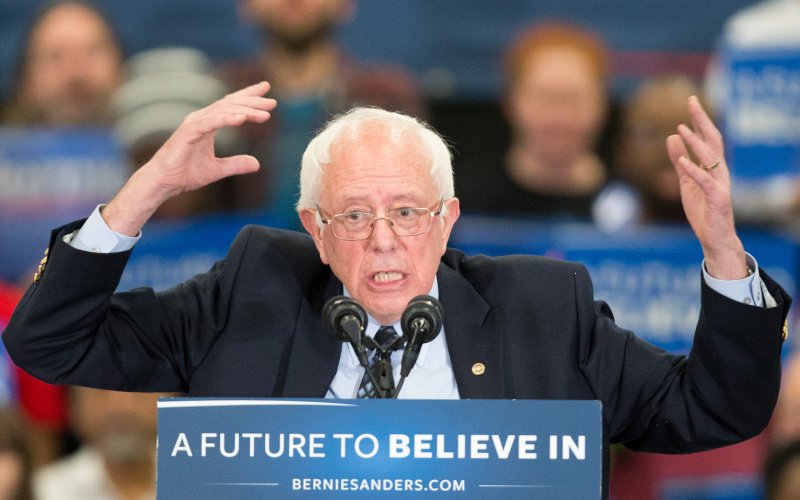One would believe that there is no black middle class, that we do not own homes or occupy executive offices. One would have to believe that there are no African American college graduates who are still worried that they cannot afford the same for their children. One would think that we are not small business owners, college professors, police officers or postal workers. Yes, some of us are worried about hailing a taxicab in New York. But, as NBC’s Al Roker will tell you, wealth is no barrier to discrimination.
“What I meant by that is, I think that many white people are not aware of the kinds of pressures and the kind of police oppression that sometimes takes place within the African-American community,” Sanders said at another campaign stop Monday. “In the African-American communities, you have police officers abusing people, and that is the point that I tried to make.”
That he seems to view black people solely through the lens of poverty and criminal justice reform is as problematic as his near constant fallback on Wall Street as chief culprit on almost every issue. His messaging, though somewhat improved in recent weeks, inextricably ties questions of race to economic issues—as if solving the latter would eradicate the former. That he is dismissive of those criticisms may be one reason why he has not been able to draw any significant support from black voters.
For his part, Sanders is quick to say that he will not be “lectured” about questions of race and inequality.
Consistently, as he did from a lectern in Flint, Sanders uses his work during the civil rights movement as a calling card. Sanders, who has represented part or all of predominantly white Vermont for the full of his political career, has spent recent months building relationships in the African-American community. A cache of black campaign surrogates passionately took to the streets and the airwaves on his behalf and Sanders says no other presidential candidate has talked about poverty more than he has. He points to his policy proposals as proof of his commitment.
But, lest anyone question his domestic policy agenda as it pertains to black people, Sanders and his supporters reflexively point out that he was once arrested for protesting segregated schools.
“In 1963, and an important day for me,” Sanders told the debate audience Sunday night, “I went to the March of Washington led by Dr. King for jobs and freedom.”
For many, that answer and others ring hollow and serve only to validate the assessment that Sanders simply does not “get it.”
Read Full Article => The Unbearable Whiteness of Being Bernie – The Daily Beast
